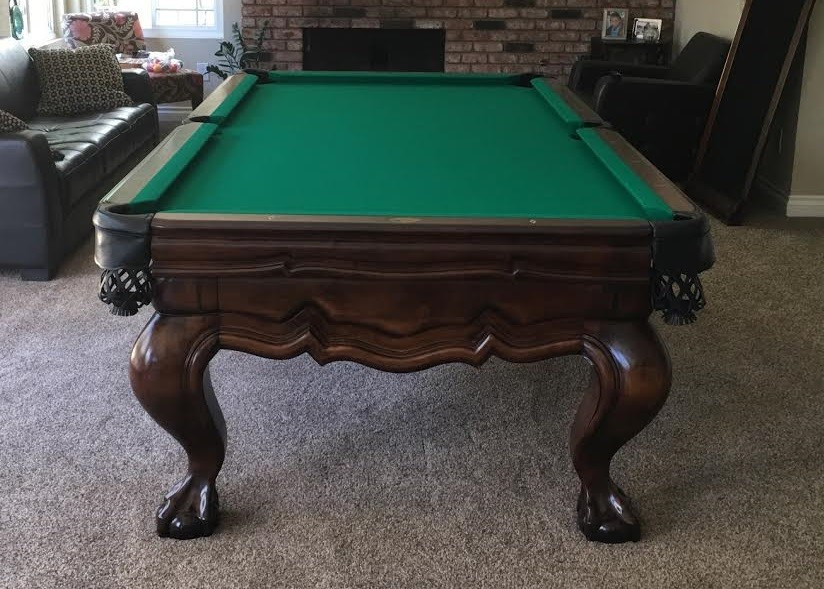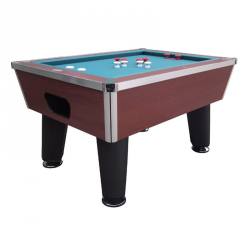

Always bounce a ball and play a bit on a table before buying! Replacing the rubber with OEM cushions is not going to fix this issue, the table will need new cushion rubber from a verified manufacturer with a guarantee on the rubber compound.


Not to pick on American Heritage exclusively but they are the most notorious for this issue. It is not uncommon for tables from companies like American Heritage to need new cushion rubber in 5-10 years even when never played on. Not every pool table manufacturer uses high quality cushion rubber, in fact most companies have zero guarantee on the rubber after it leaves the factory. 2nd hand tables or tables worked on by craigslist technicians often have this issue and the only solution is to have the work redone by a factory certified pool table mechanic. Another common issue is tables with the incorrect cushions installed or cushions installed by hand without the proper height gauge, glue, training, or any real effort. That means if the technician over pulls the cloth it can result in the height of the cushion rubber being too low and resulting in a ball hop or inconstant ball rebound. Pool table rail cloth (felt as it is commonly referred to) is installed by the pool table technician NOT the factory. Problem #2: Improper Installation of rail cloth or cushions This is the first thing you should check and carefully tighten down if needed to solve the issue The result is a rail or rails that seam "dead" when the ball hits them and does not come off with consistent speed. Over time these bolts can become loose from vibration or if the technician did not properly torque them down originally. Most home tables feature a three piece slate play surface and the pool table rails are bolted down to this part of the table during assembly. Here is a break down of what "dead" pool table rails really are and what it takes to fix the issue: This call is usually precipitated by a weekend of shooting pool for the first time in a while and someone noticing a bad rebound off of one or more rails during play. Every week we receive calls from pool table owners in Maryland and Virginia who say they have dead rails on their pool table.


 0 kommentar(er)
0 kommentar(er)
